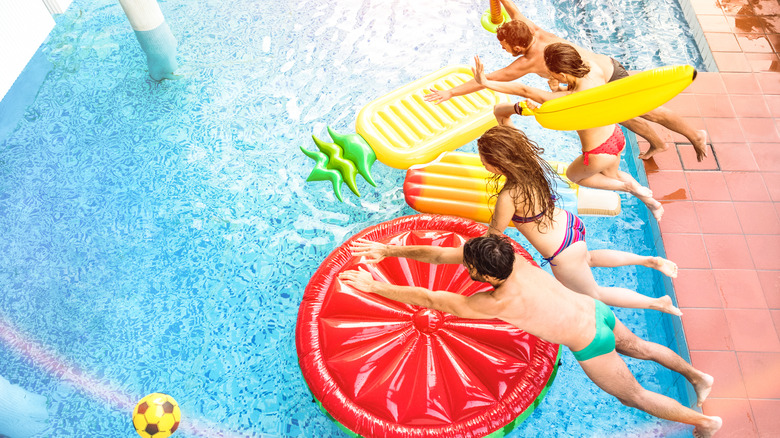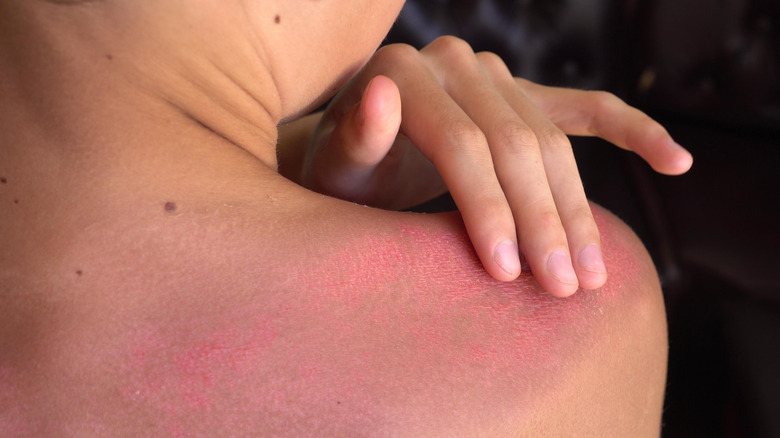If You're Taking Medications, You May Want To Heed Caution In The Summer Sun
It's important to take extra precautions while you're outside in the summer heat. One thing you may not have considered is the medications you take. One reason you should check labels and inserts on drugs is that some of them can make you more sensitive to heat and ultraviolet (UV) ray damage.
Sweating is one way that affects how certain drugs work. For instance, some heart, kidney, and liver medications that treat fluid retention have a diuretic effect. Sweating can increase how much water your body loses, resulting in a more than usual fluid loss. If you don't adequately replace the water you sweat out, you may become dehydrated quickly. Other drugs, including antidepressants, can make you sweat more. This might cause you to become dehydrated more quickly than usual (via WebMD). On the other hand, some antidepressants, antihistamines, and anticholinergics prevent you from sweating, and that might make you more prone to overheating, per Health.
Other ways the heat and sun can affect medications
Some drugs have different effects. Since blood pressure medications lower blood pressure, they can make you more susceptible to overheating and fainting — two conditions that can become worse if you are dehydrated from sweating in the heat (via WebMD).
Certain medications make your skin more sensitive to the sun. This reaction is called photosensitivity, and reactions are typically like a sunburn, but some can be severe. Drugs that might cause your skin to be more sensitive to the sun include the antibiotics sulfamethoxazole-trimethoprim, ciprofloxacin, doxycycline, levofloxacin, and ofloxacin, according to WebMD. Retinoids, which are commonly used for acne, can have the same effect. In addition, other over-the-counter skin lotions and creams that contain salicylic acid and benzoyl peroxide might make your skin more sensitive to the sun (via Health).
The best way to protect yourself while you're enjoying time outside is to wear a hat, sunscreen, and loose-fitting clothes. You should also drink plenty of water. If you begin to have trouble breathing or concentrating, or if your heart rate increases, go inside. If you think you're having a heat stroke, call 911 (via WebMD).


